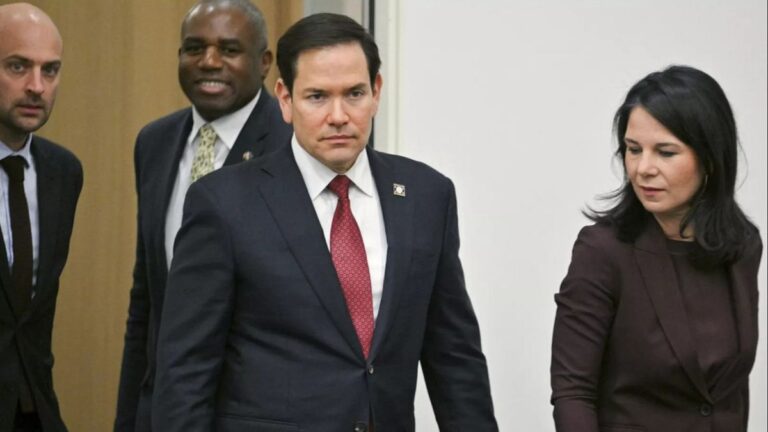Germany’s foreign ministry pushed back in an extraordinary exchange with US Secretary of State Marco Rubio after he criticised Germany’s intelligence decision to label the far-right Alternative for Germany (AfD) party as “right-wing extremist”.
The dispute grew on Friday, involving Germany’s foreign office, Rubio, US Vice President JD Vance and Elon Musk. It comes just before the 80th anniversary of Nazi Germany’s defeat and as Germany prepares to elect Friedrich Merz as chancellor after a coalition deal was reached last week.
The US government has strongly condemned the decision by Germany’s domestic intelligence agency to categorise the AfD as “right-wing extremist”.
The “right wing extremist” label that has been placed on the AfD allows authorities to monitor the party more closely. But critics, including AfD leaders and their US supporters, say the move is politically motivated.
Secretary of State Marco Rubio posted on X that having the power to “surveil the opposition” means Germany is “not a democracy, but a tyranny in disguise”.
It is not the AfD that is extremist, but the “deadly open-border immigration policies,” he continued.
Rubio called for the decision to be reconsidered, drawing a sharp rebuke from the German foreign ministry.
“This is democracy,” the Federal Foreign Office posted on X in reply to Rubio’s earlier post. “This decision is the result of a thorough & independent investigation to protect our Constitution and the rule of law. Independent courts will have the final say. We have learnt from our history that right-wing extremism needs to be stopped.”
In a post of his own on the same platform, JD Vance said that the AfD is “the most popular party in Germany,” and that bureaucrats are trying to “destroy it”.
“Together, the West tore down the Berlin Wall. And it has been rebuilt – not by the Soviets or the Russians, but by the German establishment,” he continued.
Vance in particular has been vocal in his criticism of the European Union for what he has described as the suppression of freedom of speech.
At the Munich Security Conference in February, he accused European heads of state and governments of suppressing dissenting opinions, freedom of religion and freedom of expression.
“For many of us on the other side of the Atlantic, it increasingly seems as if old, entrenched interests are hiding behind ugly Soviet-era words like misinformation and disinformation. They just don’t like the idea that someone with an alternative view could express a different opinion or, God forbid, vote differently or, worse still, win an election,” Vance said at the time, warning that this was straining Atlantic relations.
Vance later met with AfD co-leader Alice Weidel on the sidelines of the conference, even though she had not been officially invited by the event’s organisers.


